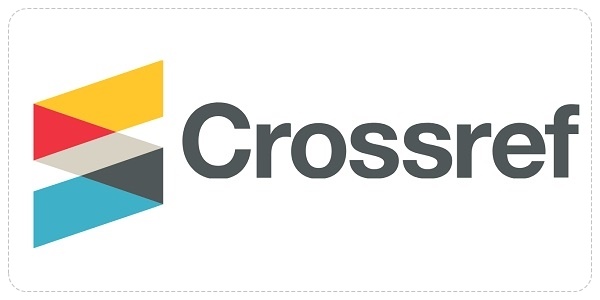Cooperative Model with Baurus Pattern Problem Solving to Improve Students' Collaborative Skills
Abstract
This research aims to determine the effect of the cooperative learning model with Baurus pattern problem solving method on the collaborative skills of students of SMP Kristen 2 (Christian Junior High School 2) on the subject of Indonesian Ecology and Biodiversity. The method used in this research is quantitative descriptive (quasi-experimental). The research subjects were students of class VII-D (control class) and class VII-C (experimental class) at SMP Kristen 2 Salatiga. Data analysis is carried out using inferential statistics with the Wilcoxon test, Man Whitney, and N-Gain score. The results of the validity and reliability test on the research instrument show that the instrument is valid and reliable. Based on the results of observations, the syntax of the cooperative learning model with Baurus pattern problem solving method is included in the fully implemented category with a score of 4.9. Students also give positive response with a score of 0.9. The results of the Wilcoxon test show that the cooperative learning model with Baurus problem solving method has an effect on collaborative skills with a p-value of 0.00 < α 0.05 and an N-Gain score reaching 0.7 (high). The results of the Man Whitney test show a p-value of 0.00<α0.05, which means there is a significant difference in influence between the cooperative learning model with Baurus pattern problem solving method and STAD cooperative learning model.
Keywords
Full Text:
PDFReferences
Abram, P., Scarloss, B., Holthuis, N., Cohen, E., Lotan, R., & Schultz, S. E. (2002). The use of evaluation criteria to improve academic discussion in cooperative groups. Asia Pacific Journal of Education, 22(1), 16–27.
Agaoglu, O., & Demİr, M. (2020). The integration of 21st century skills into education: an evaluation based on an activity example. Journal of Gifted Education and Creativity, 7(3), 105-114.
Alphrazy, R., & Octavia, B. (2023). Effectiveness of Student Teams Achievement Division and Scramble combined model on collaborative skills and conceptual knowledge mastery of Class X SMAN 1 Semparuk on bacteria. Jurnal Penelitian Pendidikan IPA, 9(6), 4783–4790.
Anantyarta, P., & Sari, R. L. I. (2017). Keterampilan kolaboratif dan metakognitif melalui multimedia berbasis means-ends analysis. Jurnal Biologi dan Pembelajaran Biologi, 2(2), 33–43.
Angkowati, J. (2020). Improving 4C skills and student learning outcomes through device-assisted creative problem solving (CPS) learning models on static electricity topics. Journal of Advances in Education and Philosophy, 4(11), 463–468.
Chiriac, E. H., & Granström, K. (2012). Teachers' leadership and students' experience of group work. Teachers and Teaching: Theory and Practice, 18(3), 345–363.
Chrisyarani, D. D., & Setiawan, D. A. (2021). 4C-based cooperative learning model through lesson study activities on Indonesian course for elementary school. In Proceedings of the 2nd Annual Conference on Social Science and Humanities (ANCOSH 2020) (Vol. 542, pp. 338–343). Atlantis Press.
Dewi, A. P., Putri, A., Anfira, D. K., & Prayitno, B. A. (2020). Profil keterampilan kolaborasi mahasiswa pada rumpun pendidikan MIPA. Pedagogia Jurnal Ilmu Pendidikan, 18(01), 57–72.
Erdogan, V. (2019). Integrating 4C skills of 21st century into 4 language skills in EFL classes. International Journal of Education and Research, 7(11), 113–124.
Gambill, J. M., Moss, L. A., & Vescogni, C. D. (2008). The impact of study skills and organizational methods on student achievement. Saint Xavier University.
Greenstein, L. (2012). Assessing 21st century skills: A guide to evaluating mastery and authentic learning. Corwin Press.
Griffin, P., Care, E., Buder, J., Sassenberg, K., & Hesse, F. (2015). Assessment and teaching of 21st century skills. Springer.
Gutwin, C., & Greenberg, S. (2005). The importance of awareness for team cognition in distributed collaboration. In E. Salas, N. J. Cooke, & M. A. Rosen (Eds.), Team cognition: Understanding the factors that drive process and performance (pp. 177–201). American Psychological Association.
Hake, R. R. (1999). Analyzing Change/Gain Scores. Dept. of Physics Indiana University. https://web.physics.indiana.edu/sdi/AnalyzingChange-Gain.pdf
Inayah, C. N., Wilodati, & Wahyuni, S. (2023). Analysis of cooperative learning model in sociology education as an effort to develop 21st century 4C skills. Forum Ilmu Sosial, 50(1), 16–24.
Irham, T., Tolla, I., & Jabu, B. (2022). Development of the 4C teaching model to improve students’ mathematical critical thinking skills. International Journal of Educational Methodology, 8(3), 493–504.
Johan, R. C., Sutisna, M. R., Rullyana, G., & Ardiansah, A. (2020). Developing online learning communities. In Borderless Education as a Challenge in the 5.0 Society (pp. 145-153). Routledge.
Johnston, S., & Fells, R. (2017). Reflection-in-action as a collective process: Findings from a study in teaching students of negotiation. Reflective Practice, 18(1), 67-80.
Lainema, K., Syynimaa, K., Lainema, T., & Hämäläinen, R. (2023). Organizing for collaboration in simulation-based environments: An affordance perspective. Journal of Research on Technology in Education, 55(2), 307–323.
Le, H., Janssen, J., & Wubbels, T. (2018). Collaborative learning practices: Teacher and student perceived obstacles to effective student collaboration. Cambridge Journal of Education, 48(1), 103–122.
Lewis, J., Magro, A., & Simonneaux, L. (2003). Learning difficulties in ecology. In Proceedings of the IVth ERIDOB Conference, Toulouse, November 2017 (pp. 211–218).
Mokracek, P. (2022). Examining the importance of respect in the classroom. Journal of Emerging Technologies and Innovative Research, 12, 1–15.
Navarro-Perez, M., & Tidball, K. G. (2012). Challenges of biodiversity education: A review of education strategies for biodiversity education. International Electronic Journal of Environmental Education, 2(1), 12–30.
Nerona, G. G. (2019). Effect of collaborative learning strategies on student achievement in various engineering courses. International Journal of Engineering Education, 1(2), 114–121.
Permendikbud. (2016). Standar Kompetensi Lulusan No. 20 Tahun 2016. Kemendikbud.
Riaz, M., & Din, M. (2023). Collaboration as 21st century learning skill at undergraduate level. SJESR, 6(1), 93–99.
Saba, N. (2017). Collaborative learning in English for specific purposes courses: Effectiveness and students' attitudes towards it. American Academic & Scholarly Research Journal Special, 5(3).
Salas, E., Cooke, N. J., & Rosen, M. A. (2008). On teams, teamwork, and team performance: Discoveries and developments. Human Factors, 50(3), 540–547.
Sandifer, P. A., Sutton-Grier, A. E., & Ward, B. P. (2015). Exploring connections among nature, biodiversity, ecosystem services, and human health and well-being: Opportunities to enhance health and biodiversity conservation. Ecosystem services, 12, 1-15.
Saphira, H. V., Rizki, I. A., Zakhiyah, I., Saharani, S. P., & Jauhariyah, M. N. R. (2022). 21st-century skills research trends over the last 10 years: Bibliometric review and analysis. Pedagogia Jurnal Ilmu Pendidikan, 20(01), 21–33.
Slavin, R. E. (1987). Cooperative learning and the cooperative school. Educational leadership, 45(3), 7-13.
Suleman, R. M., Mizoguchi, R., & Ikeda, M. (2016). A new perspective of negotiation-based dialog to enhance metacognitive skills in the context of open learner models. International Journal of Artificial Intelligence in Education, 26, 1069-1115.
Susilana, R., Rusmana, N., Rullyana, G., Nur, L., & Ardiansah, A. (2023). Hybrid learning based training for elementary school teachers in improving pedagogical competence. PEDAGOGIA, 20(3), 233-242.
Wrahatnolo, T. (2018). 21st centuries skill implication on educational system. In IOP Conference Series: Materials Science and Engineering (Vol. 296, No. 1, p. 012036). IOP Publishing.
DOI: https://doi.org/10.17509/pdgia.v22i1.67133
Refbacks
- There are currently no refbacks.
INDEXED BY

This work is licensed under a Creative Commons Attribution-ShareAlike 4.0 International License















